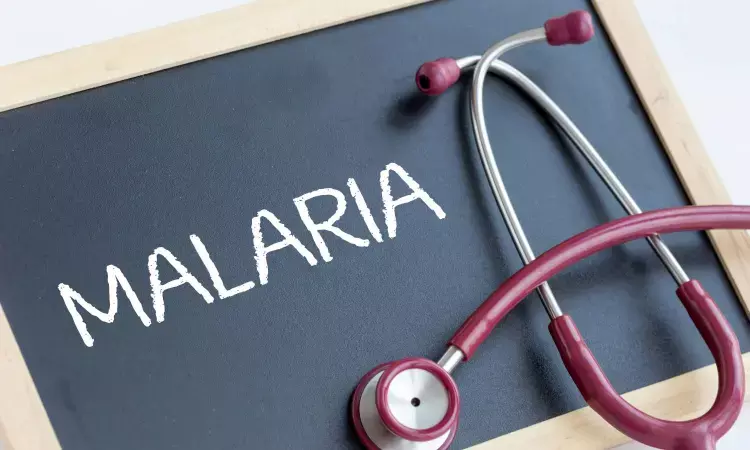- Home
- Medical news & Guidelines
- Anesthesiology
- Cardiology and CTVS
- Critical Care
- Dentistry
- Dermatology
- Diabetes and Endocrinology
- ENT
- Gastroenterology
- Medicine
- Nephrology
- Neurology
- Obstretics-Gynaecology
- Oncology
- Ophthalmology
- Orthopaedics
- Pediatrics-Neonatology
- Psychiatry
- Pulmonology
- Radiology
- Surgery
- Urology
- Laboratory Medicine
- Diet
- Nursing
- Paramedical
- Physiotherapy
- Health news
- Fact Check
- Bone Health Fact Check
- Brain Health Fact Check
- Cancer Related Fact Check
- Child Care Fact Check
- Dental and oral health fact check
- Diabetes and metabolic health fact check
- Diet and Nutrition Fact Check
- Eye and ENT Care Fact Check
- Fitness fact check
- Gut health fact check
- Heart health fact check
- Kidney health fact check
- Medical education fact check
- Men's health fact check
- Respiratory fact check
- Skin and hair care fact check
- Vaccine and Immunization fact check
- Women's health fact check
- AYUSH
- State News
- Andaman and Nicobar Islands
- Andhra Pradesh
- Arunachal Pradesh
- Assam
- Bihar
- Chandigarh
- Chattisgarh
- Dadra and Nagar Haveli
- Daman and Diu
- Delhi
- Goa
- Gujarat
- Haryana
- Himachal Pradesh
- Jammu & Kashmir
- Jharkhand
- Karnataka
- Kerala
- Ladakh
- Lakshadweep
- Madhya Pradesh
- Maharashtra
- Manipur
- Meghalaya
- Mizoram
- Nagaland
- Odisha
- Puducherry
- Punjab
- Rajasthan
- Sikkim
- Tamil Nadu
- Telangana
- Tripura
- Uttar Pradesh
- Uttrakhand
- West Bengal
- Medical Education
- Industry
Antipyretic therapy effectively lowers temperature and seizure risk in children with CNS malaria: JAMA

A recent study published in the Journal of American Medical Association highlighted an innovative treatment approach revealed promising outcomes in children with malaria and neurological involvement. The randomized clinical trial compared aggressive antipyretic therapy using both acetaminophen and ibuprofen against the standard care (acetaminophen alone) in children with central nervous system (CNS) malaria.
Malaria remains a critical health challenge in many parts of the world and its neurological complications lead to severe sequelae in children. Identifying effective treatments to reduce these outcomes is crucial. Thereby, this study analyzed whether aggressive antipyretic therapy could reduce the risk factors associated with neurological sequelae like high maximum temperature (Tmax) and seizures.
The trial was conducted across two hospitals in Zambia and one in Malawi by targeting children aged 2 to 11 years diagnosed with CNS malaria. Children with creatinine levels above 1.2 mg/dL were excluded from this study. The study enrolled a total of 256 participants from 2019 to 2022 with data analysis between December 2022 and April 2023.
The participants in the aggressive antipyretic group received a combination of acetaminophen and ibuprofen every six hours for 72 hours, irrespective of their temperature. However, the standard care group was administered acetaminophen only when their temperature reached 38.5°C or higher. The maximum temperature (Tmax) over the 72-hour period was the primary outcome measured. The aggressive antipyretic group demonstrated a significantly lower Tmax which averaged to 38.6°C when compared to 39.2°C in the usual care group. This reduction in Tmax aligned with temperatures observed in children without neurological impairments in previous studies.
The aggressive antipyretic therapy significantly reduced the odds of facing multiple or prolonged seizures. Only 8% of children in the aggressive therapy group had such seizures when compared to 27% in the usual care group. Also, no significant difference was observed between the two groups in terms of parasite clearance time. However, the incidence of severe adverse events was reduced in the aggressive antipyretic group (12%) when compared to the usual care group (20%). The aggressive antipyretic group also faced fewer deaths (3 against 10) which indicated a potentially safer profile for this treatment approach.
The outcomes suggests that aggressive antipyretic therapy can effectively lower Tmax and reduce the incidence of seizures in children with CNS malaria without increasing the parasitemia duration. Further research and potential changes in treatment protocols for pediatric malaria are imperative for aggressively managing fever and seizures to improve long-term health outcomes.
Reference:
Birbeck, G. L., Seydel, K. B., Mwanza, S., Tembo, D., Chilombe, M., Watts, A., Ume-Ezeoke, I., Mathews, M., Patel, A. A., Mwenechanya, M., Pensulo, P., & McDermott, M. P. (2024). Acetaminophen and Ibuprofen in Pediatric Central Nervous System Malaria. In JAMA Neurology. American Medical Association (AMA). https://doi.org/10.1001/jamaneurol.2024.1677
Neuroscience Masters graduate
Jacinthlyn Sylvia, a Neuroscience Master's graduate from Chennai has worked extensively in deciphering the neurobiology of cognition and motor control in aging. She also has spread-out exposure to Neurosurgery from her Bachelor’s. She is currently involved in active Neuro-Oncology research. She is an upcoming neuroscientist with a fiery passion for writing. Her news cover at Medical Dialogues feature recent discoveries and updates from the healthcare and biomedical research fields. She can be reached at editorial@medicaldialogues.in
Dr Kamal Kant Kohli-MBBS, DTCD- a chest specialist with more than 30 years of practice and a flair for writing clinical articles, Dr Kamal Kant Kohli joined Medical Dialogues as a Chief Editor of Medical News. Besides writing articles, as an editor, he proofreads and verifies all the medical content published on Medical Dialogues including those coming from journals, studies,medical conferences,guidelines etc. Email: drkohli@medicaldialogues.in. Contact no. 011-43720751


